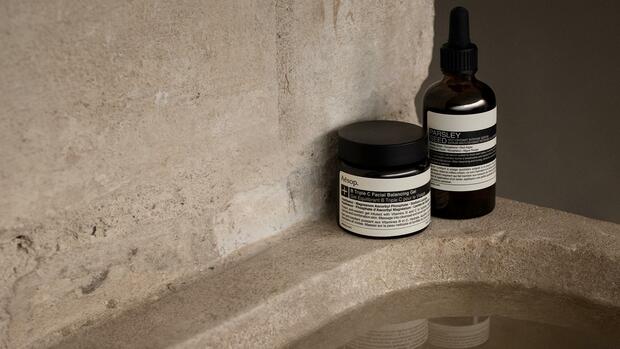Dusseldorf The world’s largest cosmetics manufacturer L’Oréal takes over the luxury care company Aesop, known for its hair and body care products. L’Oréal bought the brand from the Brazilian company Natura, the two companies announced on Tuesday night. Natura put the enterprise value at a good 2.5 billion US dollars (around 2.3 billion euros).
The French consumer goods group, which already owns luxury brands such as Lancôme and Yves Saint Laurent, intends to use the takeover to strengthen its position in the lucrative luxury care business. L’Oréal is pursuing this strategy because a significantly higher margin can be achieved with luxury products. In addition, a more solvent clientele is addressed.
The luxury business is the most important division of L’Oréal. In 2022, the French achieved almost 40 percent of their total sales of a good 38 billion euros. The head of the luxury division, Cyril Chapuy, was confident that Aesop would contribute significantly to the growth of the business in the coming years and crack the billion in sales. In the past year, Aesop achieved revenues of 537 million dollars.
“Aesop has a very unique positioning in the global luxury beauty business,” said Chapuy. In fact, the brand is considered a cult brand among consumers. Aesop was founded in Australia in 1987. In 2003 the company opened its first shop in a car park in a suburb of Melbourne. Since then, the company has grown rapidly and is represented worldwide with 400 sales outlets. In 2013, Natura acquired a majority stake in Aesop.
The brand is known for its high-priced products: hand soap costs around 35 euros, shower gel more than 40 euros, perfume well over 150 euros. Aesop advertises sustainable products and tries to differentiate itself from competitors with special ingredients, such as geranium leaves or tangerine peels.
L’Oréal wants to expand its presence in China through the acquisition
L’Oréal boss Nicolas Hieronimus wants to expand its presence in China and sees growth opportunities in the travel retail business. The duty-free shops at airports are an important sales market for L’Oréal, where luxury goods in particular are sold.
In the negotiations, L’Oréal apparently prevailed against the London-based private equity firm Permira and the Chinese investment firm Primavera Capital. The acquisition marks a change in L’Oréal’s takeover strategy, analysts at Jefferies write.
As a rule, the group uses brands that are still at an earlier stage of development. L’Oréal recently took over smaller brands such as the American skin care company Skinbetter, the Japanese cosmetics company Takami and the US brand Youth to the People, all of which generate significantly lower sales than Aesop.
The previous Aesop majority owner Natura from São Paulo had already announced in the fall that it wanted to sell the brand or take it public. The company wants to streamline its structure and save costs. Natura is under pressure from rising costs and low consumer spending, with plans for expansion held back by the pandemic and the Russian war of aggression in Ukraine.
The sale allows Natura to reduce its debt burden and focus on its remaining brands, such as Avon or Bodyshop. L’Oréal plans to close the transaction in the third quarter. On the Paris stock exchange, shares initially rose on Tuesday morning, but then lost slightly.
